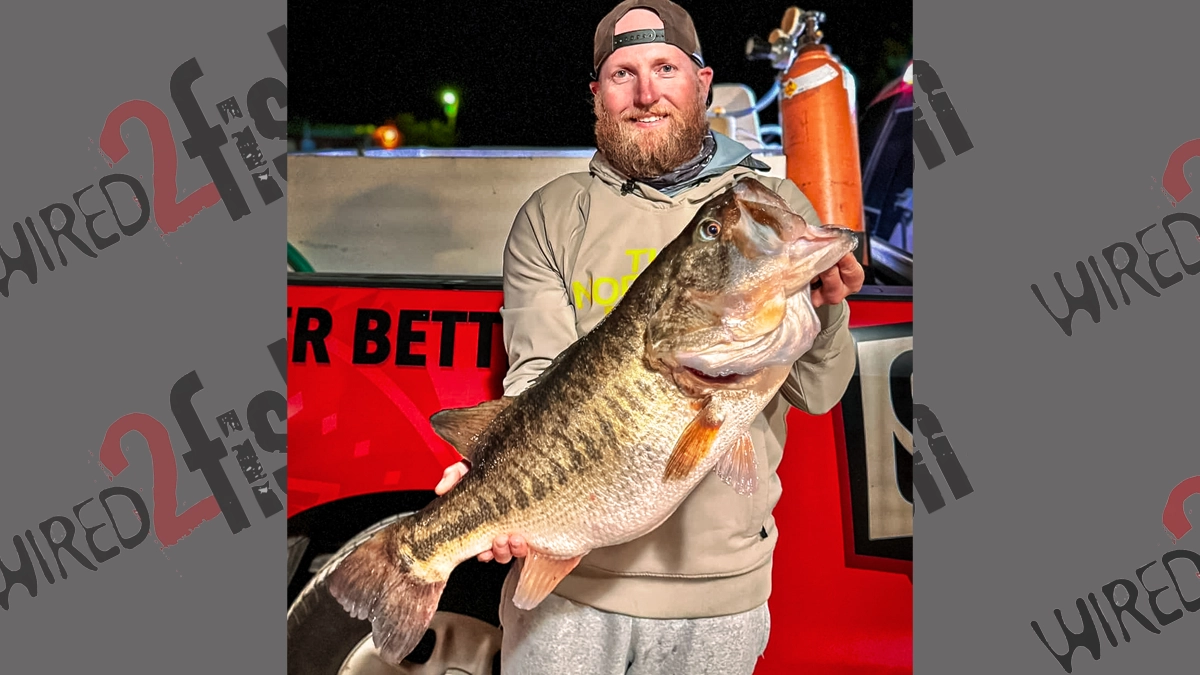The first Legacy Class Texas largemouth bass of the 2025 Toyota ShareLunker collection season is on the books! It was caught by fishing guide Brady Stanford of Millersview on O.H. Ivie Lake, the reigning ShareLunker lake champion for the past four seasons.
Stanford’s ShareLunker 670 weighed in at 13.13 pounds on Jan. 2, making it the 54th Legacy ShareLunker for O.H. Ivie in the past five seasons. A “Legacy Class” fish must be over 13 pounds and must be caught in the first three months of the year. While Stanford’s fish is the first Legacy catch of 2025, according to program officials, there were several ShareLunkers of other classes reported on Jan. 1.
Stanford fished with his father that morning, but stayed on the lake on his own through the afternoon to check a few different spots.
“I pulled up to one of the spots and within five minutes I had the fish on,” Stanford told San Angelo Live. “As soon as I got her in the boat, I knew she was going to be at least 13 pounds. I weighed her and the fish was a little over 13 pounds on my scale, so I called Concho Marina and let them know I needed to use their certified scale. We weighed the fish and then called TPWD to collect her.”
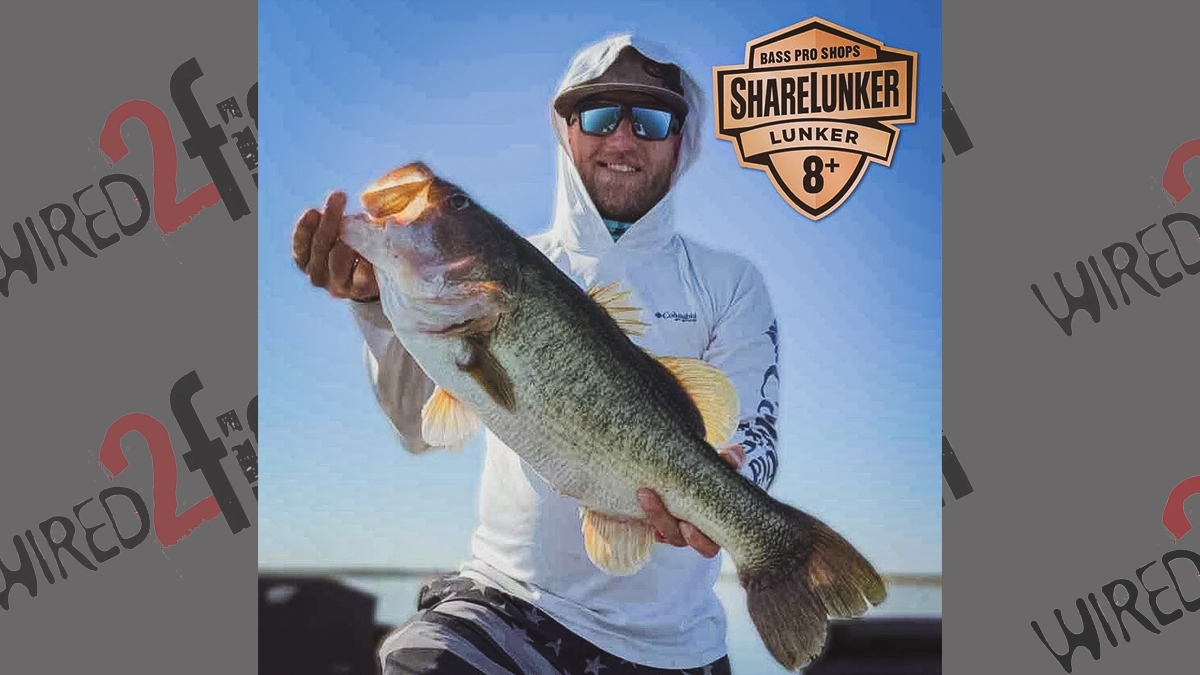
This is Stanford’s second Legacy Class ShareLunker. He caught his first on Jan. 23, 2022, on the same lake when he pulled in a bass that weighed 15.03 pounds. As a guide, Stanford has put three clients on Legacy Class lunkers in the past two years.
“Here she is, first Toyota ShareLunker of the year!!! This one weighed in at 13.13lbs! That makes 4 years in a row with a Sherry, and the season is just getting started,” Stanford posted on Facebook the day of the catch. “She had a huge frame and had the potential to be a mega giant, I can only imagine how big she would be full of eggs.”
Since 1986, the Texas ShareLunker Program has been working with the Texas Parks and Wildlife Department (TPWD) to increase the health, and size, of the state’s largemouth bass population through an elaborate breeding program. The other major component is data gathering, which is accomplished through the ShareLunker community.
“Angler participation in the Toyota ShareLunker Program has steadily increased over the past couple of years, playing a crucial role in its success,” Natalie Goldstrohm, the program coordinator, told Wired2Fish. “By sharing their ShareLunker catch information and DNA samples, anglers contribute directly to making bigger, better bass fishing in Texas.”
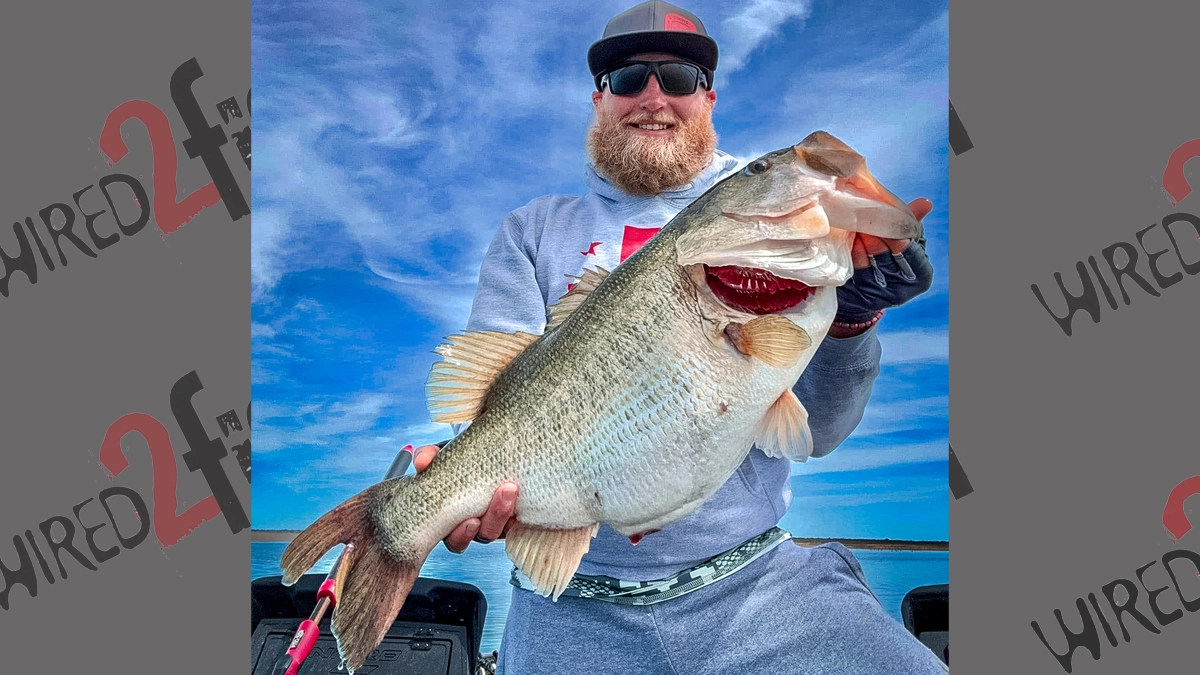
For nearly 40 years, the biggest largemouth on the Texas record books was a 13.5-pound fish. Bass simply weren’t getting bigger. That all began to change in 1972 when largemouth bass from Florida were introduced to the Texas waterways.
In 1986, the Texas ShareLunker Program was officially launched by the TPWD to conduct research and selectively breed largemouth bass, which are then stocked in lakes throughout the state. This is all done in an effort to provide anglers with bigger and better bass.
In 1992, the new state record largemouth was 18.18 pounds. In 2022, Brodey Davis caught a 17.06-pound ShareLunker 620 at O.H. Ivie. In fact, with Stanford’s recent addition, O.H. Ivie Lake has racked up 54 Legacy Class ShareLunkers over the past five collection seasons, which run from Jan. 1 to Dec. 31.
“Fisheries biologist don’t sample trophy largemouth bass in the proportion they are represented in the population with traditional sampling gears,” Goldstrohm said. “While fisheries biologist collect additional information on trophy bass from creel surveys and tournament results, allowing anglers to contribute their catch information on bass over 8 pounds or 24 inches is important to better manage the lunker bass populations.
“This collaborative effort with anglers ensures that management strategies are created with the best information,” she added.
The Texas ShareLunker Community
The department’s fishery biologists collect angler-driven citizen science data from members of the ShareLunker community who report and log data about qualifying bass that they catch throughout the year. This data is crucial for the breed program so biologists can tell what is working where.
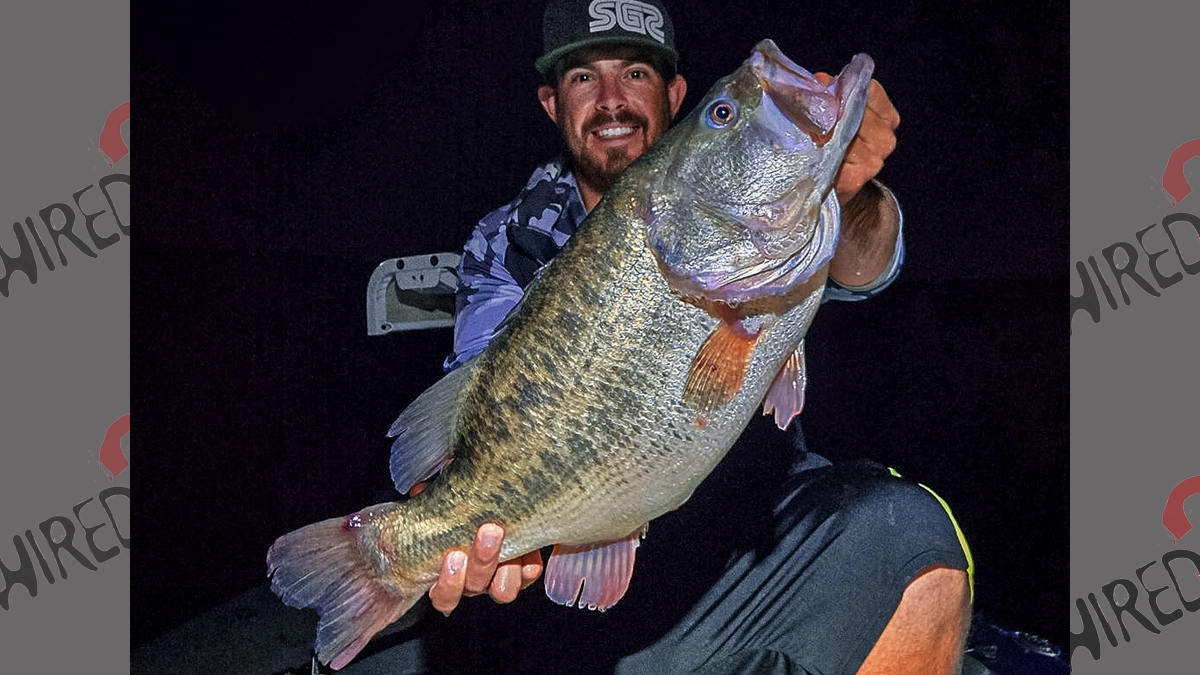
As an incentive for anglers to participate by reporting data about their fish, there are numerous prizes offered by sponsors. In 2009, Toyota became the primary sponsor of the program, taking over for Budweiser.
To qualify for the Toyota ShareLunker Program, a catch must be at least 8 pounds or 24 inches long, which is considered part of the “Bass Pro Shops Lunker Class.”
If a Texas bass breaks the 10 pound mark, it qualifies for the “Strike King Elite Class,” and if it breaks the 13-pound mark, the fish is in the “Lew’s Legend Class.”
Each class includes accompanying awards and prizes that increase proportionally. The program also asks that anglers donate their fish if it’s over 13 pounds.
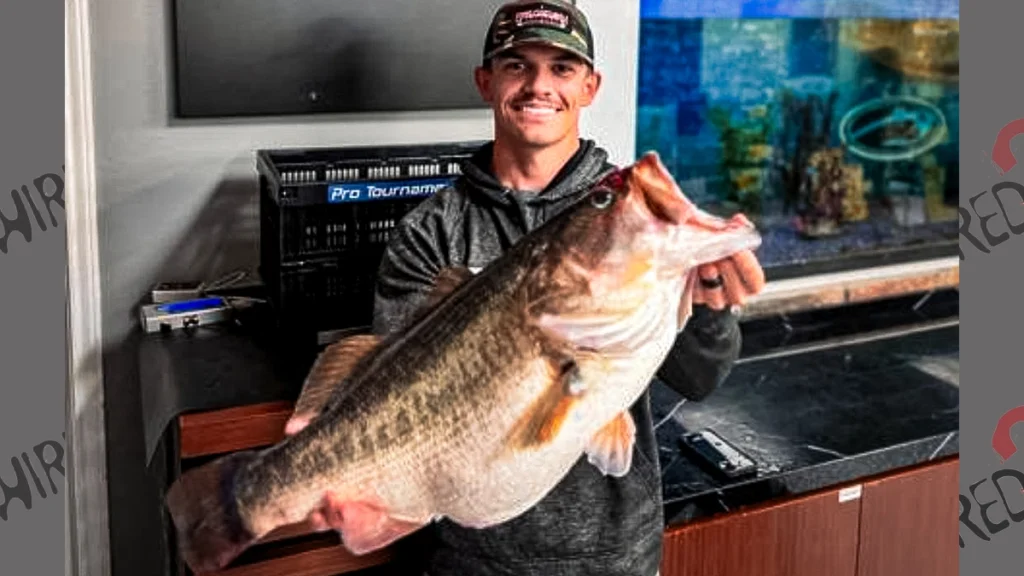
There’s also a fourth “Legacy Class” — for a fish to qualify here, it must be over 13 pounds and caught during the spawning months from January through the end of March, and the fish must be donated to the program. During this period, the program has a 24/7 hotline up and running that can be reached at 903-681-0550.
The most recent ShareLunker was caught on Dec. 16, 2024, by Christian Gladfelter in Abilene. You can check out the full archive of Texas ShareLunkers here.
So, how well has the ShareLunker Program worked to improve the bass population in Texas in recent years? It’s hard to say exactly, but Goldstrohm said the evidence that the program continues to succeed is there.
“Trying to quantify an increase in bass size over the last five years is difficult. Since the reservoirs are not stable systems, the conditions the fish are growing in is ever changing,” Goldstrohm said. “For example, with drought across Texas, there will be fluctuating water levels that will influence bass growth.
“Another example of a factor impacting fish growth is reservoir aging. As a waterbody gets older, there is a decrease in habitat that ultimately impacts the sport fish that anglers target. With that said, we had several bass in the top 50 largest largemouth bass list get caught in the last five years, two in the Top 10 largest largemouth bass list, several new waterbodies producing Legacy Class bass (there are now 78 public waterbodies that have produced a Legacy Class bass), and new waterbody records being set.
“Additionally, there are 175 public waterbodies in Texas that have produced bass that are 8 pounds or 24 inches or bigger.”
How To Enter a Bass in the ShareLunker Program
For a bass to be entered as a ShareLunker, it must be weighed on a certified scale — a list of official weigh stations can be found on the ShareLunker Website. Anglers must also enter the catch data and a photo on the Toyota ShareLunker mobile app (available from the Apple App Store and Google Play), or at the ShareLunker site.
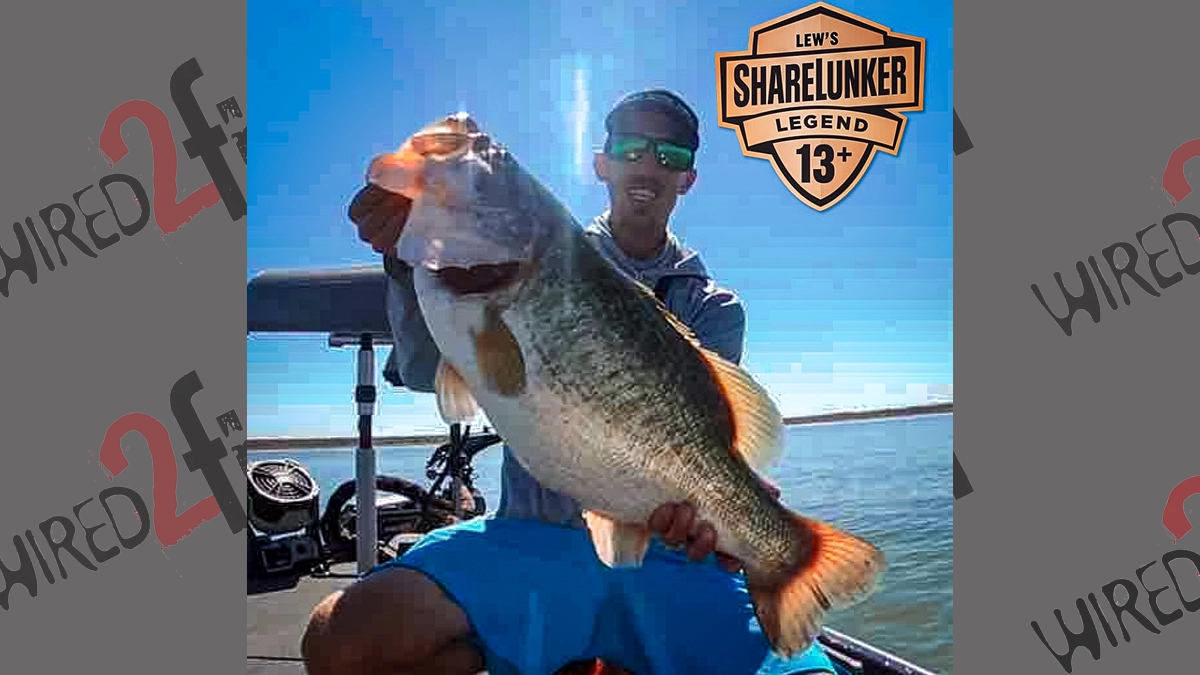
Anglers that meet all the requirements for Legacy Class status receive a “catch kit” of merch, an exclusive decal for the truck or boat, VIP access to the Toyota ShareLunker Annual Awards event, a replica mount of the fish from Lake Fork Taxidermy, some ShareLunker branded apparel from AFTCO, plus a swag bag and annual subscription from Bass University.
What’s more, the anglers are entered into two drawings: a Legacy Class Drawing and the year-end Grand Prize drawing, which both award the winner with a $5,000 Bass Pro Shops shopping spree.
Anglers with fish in other classes receive a catch kit, decal, a month subscription to Bass University, plus an entry in the Grand Prize drawing.
If you send in a DNA scale sample (instructions are on the website) for genetic analysis, you get a Lew’s baitcast reel valued at up to $200 (one reel per angler while supplies last), plus a three-month subscription to Bass University.
“Anglers have the opportunity to share their ShareLunker DNA with TPWD and this helps us determine if stockings are working well, and we can see if this catch is related to any of the other ShareLunkers submitted,” Goldstrohm said.
“I’ve been through and have seen the process to submit a Legacy Class a few times before and each time I’ve been impressed about how easy it is to get ahold of TPWD to submit the fish,” Stanford told San Angelo Live. “They help walk you through every step of the process and are there within an hour or hour and a half to get the fish, provide care and transport it to the Texas Freshwater Fisheries Center (TFFC). They answer any questions I have right away and it’s always impressive to see the program firsthand.”


